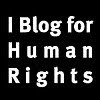
HIV prevalence among gay and bisexual men has hit alarming levels in Asia and most of them do not have access to services and care due to punitive laws which drive them underground, a U.N.-backed report said on Monday.
The situation may worsen if countries fail to reverse laws that criminalise sex between adult males and cross-dressing, and selectively prosecute gay and bisexual men using public order and prostitution offences, it added.
"Nineteen of 48 countries in the Asia Pacific region criminalise male-to-male sex, and these laws often take on the force of vigilantism, often leading to abuse and human rights violations," according to the report.
"Even where there are no specific offences for male-to-male sex, MSM (men who have sex with men) and transgender people are subject to police abuses and are targeted by police for other offences relating to public order, vagrancy, prostitution and obscenity."
Put together by the United Nations Development Programme (UNDP), Asia Pacific Coalition on Male Sexual Health (APCPM) and the University of Hong Kong's Center for Comparative and Public Law, the report said HIV prevalence among gay and bisexual men has been rising in many Asian countries.
For example, HIV prevalence among gay and bisexual men in Bangkok was now 30.8 percent compared to 1.4 percent in the adult population in Thailand. In Yangon, the figure was 29.3 percent versus 0.7 percent in Myanmar; while in Mumbai, it was 17 percent versus 0.36 percent in all of India.
Over 90 percent of gay and bisexual men in Asia do not have access to HIV prevention and care services, the report said. It cited examples of repressive laws or lack of anti-discrimination laws preventing these men from getting the help they needed.
These include HIV prevention services being interrupted by police harassment of outreach workers, many of whom are MSM or transgender peer educators. Condoms and lubricants are also confiscated by police as evidence of sex work or of illegal male-to-male sex.
The report urged for the repeal of laws that criminalise sex between men and the enactment of anti-discrimination laws.
"The effectiveness of the HIV response will depend not just on the sustained scale up of HIV prevention, treatment and care, but on whether the legal and social environment support or hinder programmes for those who are most vulnerable" said Mandeep Dhaliwal, UNDP Cluster Leader on Human Rights, Gender & Sexual Diversity.
The situation may worsen if countries fail to reverse laws that criminalise sex between adult males and cross-dressing, and selectively prosecute gay and bisexual men using public order and prostitution offences, it added.
"Nineteen of 48 countries in the Asia Pacific region criminalise male-to-male sex, and these laws often take on the force of vigilantism, often leading to abuse and human rights violations," according to the report.
"Even where there are no specific offences for male-to-male sex, MSM (men who have sex with men) and transgender people are subject to police abuses and are targeted by police for other offences relating to public order, vagrancy, prostitution and obscenity."
Put together by the United Nations Development Programme (UNDP), Asia Pacific Coalition on Male Sexual Health (APCPM) and the University of Hong Kong's Center for Comparative and Public Law, the report said HIV prevalence among gay and bisexual men has been rising in many Asian countries.
For example, HIV prevalence among gay and bisexual men in Bangkok was now 30.8 percent compared to 1.4 percent in the adult population in Thailand. In Yangon, the figure was 29.3 percent versus 0.7 percent in Myanmar; while in Mumbai, it was 17 percent versus 0.36 percent in all of India.
Over 90 percent of gay and bisexual men in Asia do not have access to HIV prevention and care services, the report said. It cited examples of repressive laws or lack of anti-discrimination laws preventing these men from getting the help they needed.
These include HIV prevention services being interrupted by police harassment of outreach workers, many of whom are MSM or transgender peer educators. Condoms and lubricants are also confiscated by police as evidence of sex work or of illegal male-to-male sex.
The report urged for the repeal of laws that criminalise sex between men and the enactment of anti-discrimination laws.
"The effectiveness of the HIV response will depend not just on the sustained scale up of HIV prevention, treatment and care, but on whether the legal and social environment support or hinder programmes for those who are most vulnerable" said Mandeep Dhaliwal, UNDP Cluster Leader on Human Rights, Gender & Sexual Diversity.








































0 comments:
Post a Comment
Please drop me a line: